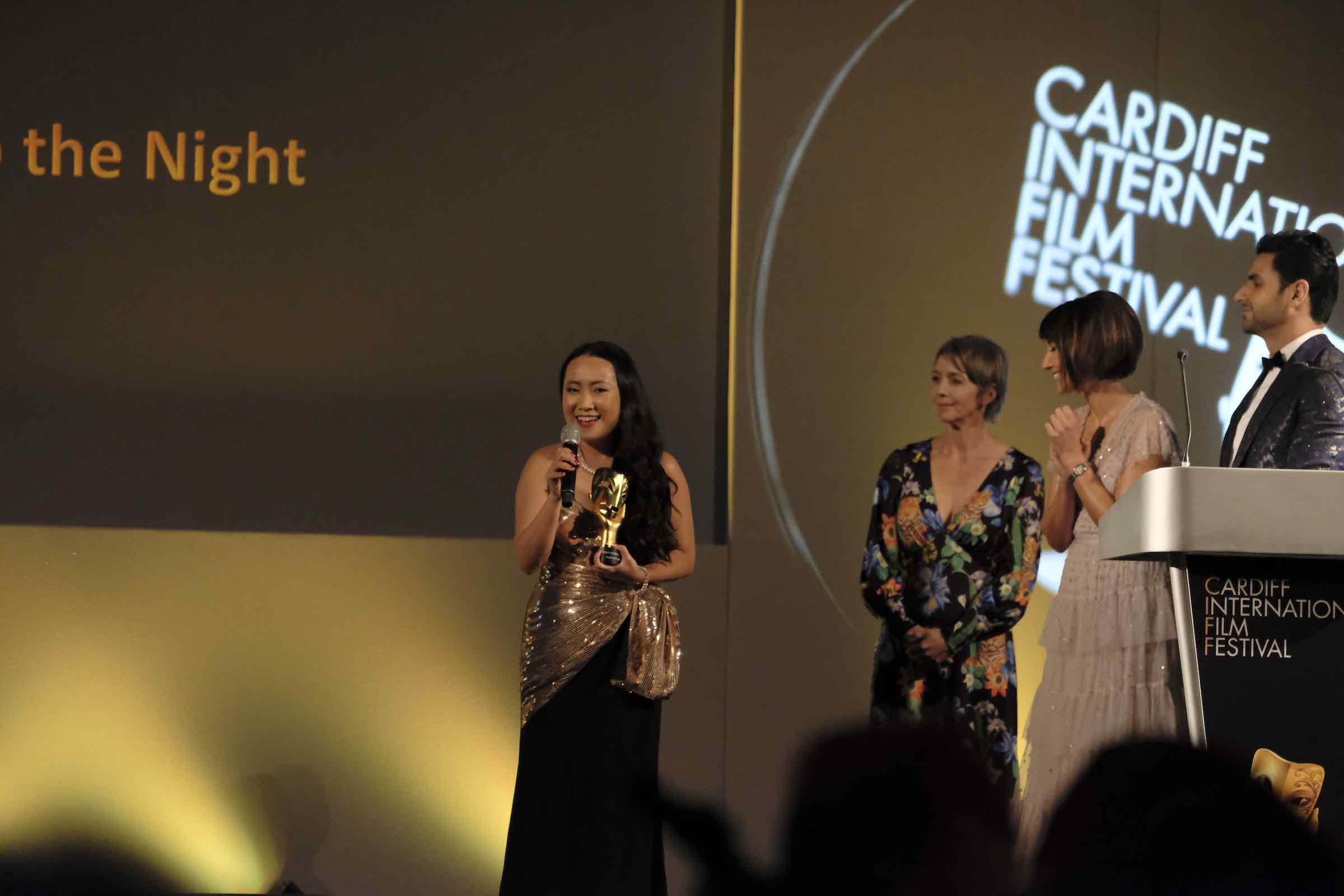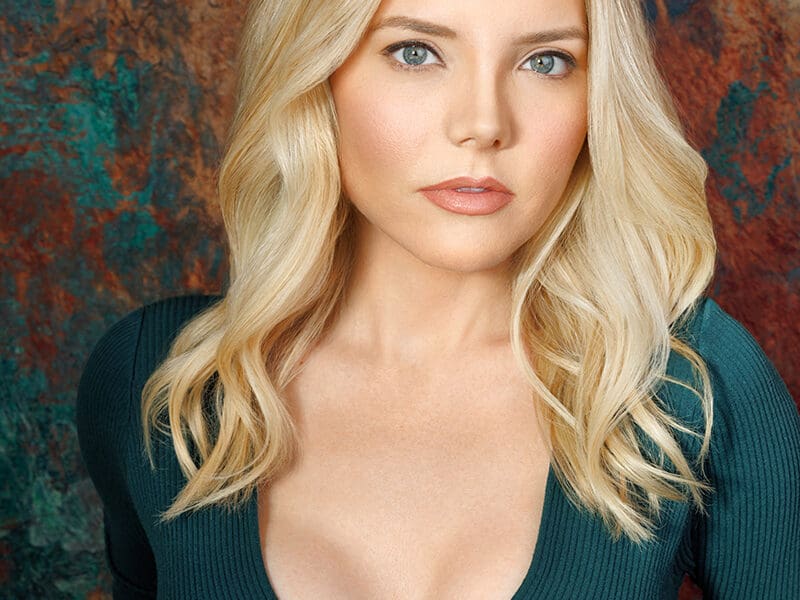
Head ‘Into the Night’ with filmmaker Kate Li
Kate Li is a talented filmmaker who recently completed her feature film Into the Night. Based in Los Angeles, Kate earned her MFA in film production from Boston University, where she was awarded the Leader Scholarship, the Hing Wah Cheung Fellowship, and the Al Uzielli Production Award.
Into the Night (2019) is Kate’s feature film directorial debut. Her short films include Into the Night (2014) and Compassionate Release (2016) – both have been screened at film festivals across the U.S.
Into the Night, a feature film made on a budget of $6,000 with a total cast and crew of 8 members, is starting to garner attention at the very competitive international film festival scene. It is scheduled to screen at two major international film festivals this October: LA Femme International Film Festival in Los Angeles, California.

Kate recently attended the Cardiff International Film Festival in Wales, United Kingdom. Where the film Into the Night won Best F-Rated Film (films directed by women or have a strong female lead).
The film revolves around the story of a young woman trying to break free from the web of manipulation she is caught in and gain her independence, a metaphorical story for the small person who is frequently taken advantage of to fight back.
It is a woman-directed, co-wrote, co-produced film centered around a woman character, and breaks a few boundaries of traditional gender roles in classic detective stories, bringing a contemporary narrative and characters to the iconic film noir style.
We interviewed Kate Li about her current project and possible updates on the future.
Tell us about your history as a filmmaker. How did you start your journey?
I actually started my journey through the visual arts and theatre. I grew up in an artistic environment and studied visual arts growing up, in a variety of forms such as drawing, painting, Chinese painting, calligraphy. I’ve also always been fascinated by storytelling, so I majored in theatre acting in college.
I enjoyed acting and wanted to combine what I love about the visual arts with what I learned and experienced about storytelling through acting to broaden my horizon, so that’s when I fell in love with directing.
After directing a few stage productions in college, I went on to get a Master’s degree from Harvard University, where I explored more of the educational purposes of theatre and film in our society, and an MFA in Film Production from Boston University, where I focused on directing.
Who were your early influences?
I was very much influenced by a lot of artists growing up. A few of my favorites from whom I get a lot of my artistic inspirations from include Claude Monet, J. M. W. Turner, Salvador Dali, Leonardo Da Vinci, and Albrecht Dürer. I was introduced to films a little later when I was a teenager, and some of my major influences are Christopher Nolan, Alfred Hitchcock, Billy Wilder.
How was working on Into the Night? What did you learn from the experience?
It was a great experience working on Into the Night, both gratifying and challenging. We made this film with $6,000 and a total cast and crew of 8 members, so we had to really stretch our creativity to tell a story that is manageable and engaging, and come up with creative solutions to solve problems due to our limited resources.
My husband J.D. Benjamin and I worked very closely on this film – this is our first feature film, and we definitely learned a lot from this valuable experience, both about the process of making a feature film, and how far we can stretch our creative limits.

Tell us about your career before film.
It’s not so much a career before film, but more of something that I do and explore concurrently with making films – I do a lot of graphic design and marketing, and I think the things I learned from design and marketing are actually very helpful for my filmmaking experience as well.
Where did the concept come from for Into the Night?
The concept of Into the Night came from a short film of the same name I made in graduate school back in 2014. I was very drawn to the film noir style and wanted to explore the classical elements of film noir, such as the harsh light and shadows, the presence of rain and water, the detective and femme fatale, so in Into the Night, we wanted to explore these elements but also give the story contemporary characters.
We played with the narrative and the traditional gender roles, and instead of having a male protagonist being the detective and a femme fatale leading the man into a dangerous situation, we have a young woman who has to be the detective, and an “homme fatal” who tries to lead her into a dangerous situation.
We wanted this film to be a story about the underdog: the story of a young woman who is frequently ignored and taken advantage of; the small person who feels like his or her voice can’t be heard. Now it’s up to them to choose what to do about the situation they are put in.
Tell us about your creative process.
My husband J.D. and I work together on projects. In the writing process, he usually writes the first draft with a variety of ideas, and I trim it down into a more manageable amount.
We discuss the stories and characters a lot, and usually from these discussions we find a way to elevate the story and deepen the understanding of our characters. We do discuss the tone, style, and visual components of the script as well, and after the script is done, I usually take the lead on the artistic choices, and J.D. takes on the producing role.
What tips do you have for new filmmakers?
We are still fairly up-and-coming as filmmakers, so I don’t want to sound pretentious here. I think one of the most interesting and valuable lessons I’ve learned from my experience is that “know yourself” is of vital importance. To be able to know your strengths and weaknesses, and objectively assess your abilities is very important, and it can help you find the right project, the right position, and the right direction.
You’re very hands-on with your projects. How hard is it wearing all the hats?
It actually came pretty naturally to me, since we wrote the script with our abilities and limitations in mind. I always enjoyed directing, acting, and editing, so I was very glad that I get to do all of those in this project, although it sometimes was very challenging, being in front of the camera and behind the camera at the same time, and given our limited resources, I edited the film as we shot the scenes.
The newest task I took on in Into the Night is music composing, which I haven’t done in my other projects, but I also play a little piano so the type of music I’m able to compose and play actually worked out well with the type of music I envisioned for this film.
What’s your next project?
We have a few scripts written, and one that we are focusing on and polishing right now is a crime drama, in more of a neo-noir style. This project would need a little more resources than what we had for Into the Night, so we are looking to expand our network and find partners to collaborate.
Have you worked with mentors in the past? How would you recommend people go about finding them?
I’ve had the good fortune to have some great mentors through my experience in higher education, and I learned from them not only in terms of filmmaking, the arts, and theatre, but also in life.

What’s your filmmaking mission? Name the most important thing you want viewers to experience when watching your movies.
I want my films to be both entertaining and thought provoking. I would be really happy if viewers can walk away thinking it was a good story, and also have some fresh thoughts about a subject, or see something in a new light, or think that the film brought something new to their perspective.
Can we expect to see any episodic television from you anytime soon?
With the technology we have today, there are so many new ways to stream content; the formats of the platform influence the way stories are told, but at the end of the day, a good story is a good story. So I’m always open to create content for various platforms.
What’s your five-year plan?
There are so many unpredictable elements that goes into a film coming into fruition, but in a perfect world, we would have finished our second feature film and have the third one in the works.
What’s your favorite film of all time, and what did you learn from it?
I would say the Lord of the Rings trilogy. I know it’s not exactly fair to give a trilogy when asked for one film, but I tend to see the trilogy as a whole. It’s not only the brilliance of the story, the storytelling, and filmmaking that went into this trilogy, but also the personal significance that it had on me by illuminating my path when I was at the most challenging time in my life.
Lord of the Rings illustrated the word “hope” to me, and persuaded me to never lose hope, no matter how impossible it seems – to quote Tolkien, “even the smallest person can change the course of the future.”







